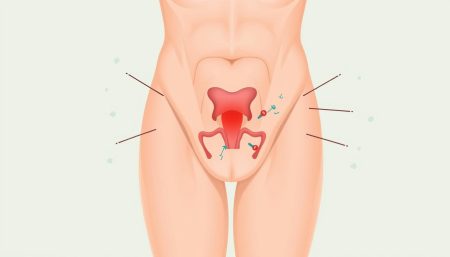Botched Plastic Surgery Plastic surgery aims to improve looks, but it comes with risks. Bad plastic surgery can cause serious problems. It’s important for patients to know the possible complications before surgery.
Complications from cosmetic surgery can be minor or very serious. It’s key to understand these risks if you’re thinking about getting aesthetic procedures. With more people getting plastic surgery, there’s more focus on the cases that go wrong.
This article will look into the world of botched plastic surgery. We’ll cover warning signs, common risky procedures, and how to protect yourself. Knowing about these things can help keep you safe and healthy.
Understanding Botched Plastic Surgery: Definition and Overview
Botched plastic surgery means failed cosmetic procedures that don’t look right. These mistakes can be small or very serious. It’s key for anyone thinking about plastic surgery to know the risks.
What Constitutes a Failed Cosmetic Procedure
A cosmetic procedure goes wrong when it doesn’t look as expected or causes problems. This might be because it’s not symmetrical, has too much scarring, or doesn’t work right. In bad cases, it can lead to infections, damage, or even be life-threatening.
Common Types of Surgical Complications
Surgical mistakes in plastic surgery can happen in many ways:
- Infections at the incision site
- Excessive scarring or keloids
- Nerve damage leading to numbness or paralysis
- Blood clots or hematomas
- Adverse reactions to anesthesia

Statistical Data on Plastic Surgery Mishaps
Even though plastic surgery is popular, it comes with risks. Recent numbers show how common mistakes are in cosmetic surgeries:
| Procedure | Complication Rate | Most Common Issue |
|---|---|---|
| Breast Augmentation | 5.2% | Capsular contracture |
| Liposuction | 3.7% | Contour irregularities |
| Rhinoplasty | 4.8% | Breathing difficulties |
| Facelift | 3.3% | Facial nerve injury |
These numbers show why picking a good surgeon is so important. They also highlight the need to think about the risks of failed procedures. Before getting plastic surgery, weigh the good against the bad.
Most Common Procedures Prone to Complications
Plastic surgery mistakes can cause lasting harm and emotional pain. Some surgeries are riskier than others. It’s important for those thinking about cosmetic changes to know these risks.

Breast augmentation is often at the top of the list of risky surgeries. Problems like implant rupture, tight scar tissue, and uneven breasts can happen. Liposuction, though popular, can lead to uneven fat removal and skin issues.
Facelifts might cause nerve damage or leave scars. Rhinoplasty can lead to breathing problems or not look as expected. Tummy tucks can result in fluid buildup and poor healing of the incision.
| Procedure | Common Complications | Risk Level |
|---|---|---|
| Breast Augmentation | Implant rupture, capsular contracture | High |
| Liposuction | Uneven fat removal, skin irregularities | Moderate |
| Facelift | Nerve damage, visible scarring | Moderate |
| Rhinoplasty | Breathing issues, unsatisfactory results | Moderate |
| Tummy Tuck | Seroma, poor wound healing | High |
Complications can come from inexperienced surgeons, health issues, or unrealistic hopes. Doing your homework and picking a certified plastic surgeon can lower these risks.
Warning Signs Before Surgery: Choosing the Right Surgeon
Finding a qualified plastic surgeon is key to avoiding bad outcomes. It’s important to do your homework to get the best results. This means researching and choosing wisely.
Verifying Medical Credentials and Certification
Make sure your surgeon is certified. Look for the American Board of Plastic Surgery seal. Check their education, experience, and if they specialize in your procedure.
Red Flags in Consultation Process
Be cautious during your first meeting with the surgeon. Watch out for signs of trouble:
- Pressure to make quick decisions
- Lack of clear communication about risks
- Reluctance to show before-and-after photos
- Unrealistic promises of results
Importance of Facility Accreditation
The place where you’ll have surgery must be accredited. This means it follows strict safety rules. It lowers the chance of problems or bad results.
| Accreditation Body | What It Certifies |
|---|---|
| American Association for Accreditation of Ambulatory Surgery Facilities (AAAASF) | Outpatient surgical facilities |
| Accreditation Association for Ambulatory Health Care (AAAHC) | Ambulatory health care organizations |
| The Joint Commission | Hospitals and healthcare organizations |
By carefully checking your surgeon, watching for red flags, and making sure the facility is accredited, you can lower your risk of bad outcomes. This way, you can have a safer and more successful surgery.
Physical and Emotional Impact of Failed Procedures
Botched plastic surgery can ruin a person’s life. It causes physical pain, disfigurement, and long-term health problems. These issues not only harm how you look but also hurt your mental health.
Failed surgeries can lead to scarring, nerve damage, and infections. In bad cases, patients might need many surgeries. This means long recovery times and more medical bills.
The emotional side of botched plastic surgery is just as tough. People often feel depressed, anxious, and lonely. Their self-confidence drops, and they may have body image problems for years.
“I felt like a monster after my failed nose job. It took years of therapy to regain my confidence.”
Those who’ve had plastic surgery gone wrong say:
- It’s hard to keep relationships
- They face career problems because of how they look
- They deal with ongoing emotional pain and trauma
- They also face financial troubles from fixing the problems
The bad effects of botched surgeries show why it’s key to do your homework and pick a good surgeon. Knowing the risks helps patients make smart choices and avoid serious problems.
Legal Aspects of Plastic Surgery Negligence
Knowing your legal rights is key when facing plastic surgery malpractice. The law helps those hurt by surgical errors. But, understanding this can be hard.

Patient Rights and Protection
Patients have the right to know what they’re getting into, to receive proper care, and to get help if they’re harmed. If a procedure goes wrong, you might be able to sue the ones responsible.
Documentation Requirements
It’s important to keep good records in cases of plastic surgery malpractice. This includes:
- Pre-operative photos and consultations
- Surgical notes and records
- Post-operative care instructions
- All communication with your surgeon
These records are key evidence if you need to take legal action.
Statute of Limitations
Don’t wait too long to file a claim for surgical errors. The time limit varies by state, usually between one to three years. It’s critical to act quickly to keep your rights.
| State | Statute of Limitations |
|---|---|
| California | 1 year from discovery, 3 years from injury |
| New York | 2.5 years from incident |
| Florida | 2 years from discovery, 4 years from incident |
If you think you’ve been a victim of plastic surgery malpractice, talk to a lawyer who knows medical negligence. They can help you through the legal steps and protect your rights.
Recovery Options After Botched Procedures
Dealing with the aftermath of failed cosmetic procedures can be tough. Many feel lost and unsure about what to do next. But, there are ways to recover from botched enhancements.
One common solution is surgical revisions. These aim to fix problems from the first surgery and get the look you want. For minor issues, non-surgical treatments like fillers or laser therapy might help.
Getting help from experts is key. Plastic surgeons who specialize in fixing past surgeries can guide you. They’ll figure out the best treatment for you, which might include a mix of options.
| Recovery Option | Suitable for | Recovery Time |
|---|---|---|
| Surgical Revision | Major complications | 4-6 weeks |
| Non-Surgical Treatments | Minor issues | 1-2 weeks |
| Combination Approach | Complex cases | Varies |
Recovering from botched procedures is hard. You might feel pain, emotional stress, and worry about money. Support groups and counseling can offer emotional support during this tough time.
Healing takes time. Be patient with your body and follow your doctor’s advice. With the right care and guidance, many people can get the results they want and feel confident again.
Financial Implications and Insurance Coverage
The financial burden of cosmetic surgery complications can be overwhelming. Patients often face steep costs for corrective procedures. This adds to the emotional toll of botched surgeries.
Cost of Corrective Surgery
Fixing plastic surgery horror stories isn’t cheap. Corrective procedures can cost more than the initial surgery. Costs range from $5,000 to $50,000 or higher. Factors influencing these costs include:
- Severity of complications
- Type of procedure needed
- Surgeon’s expertise
- Facility fees
Insurance Claim Process
Navigating insurance claims for botched surgeries can be tricky. Most insurers don’t cover elective cosmetic procedures. But if complications lead to medical issues, you might have a case. Steps to file a claim:
- Document all medical records
- Contact your insurance provider
- Submit a detailed claim form
- Provide evidence of medical necessity
- Be prepared for possible denials and appeals
Remember, each case is unique. Consult with a healthcare advocate or attorney to understand your options. Don’t let financial concerns prevent you from seeking necessary corrective treatments after experiencing cosmetic surgery complications.
Preventing Surgical Errors: Essential Precautions
Surgical mistakes can ruin plastic surgery results. It’s important to take steps to avoid these risks. Patients have a big role in making sure the surgery goes well.
Do your homework on your surgeon. Check their qualifications, experience, and past results. Make sure they are board certified and read what other patients say. Also, ask to see photos of their previous work.
Talking openly with your surgeon is key. Share your goals, worries, and health history. Be upfront about any medicines or supplements you’re using. This info helps avoid problems.
Follow the instructions you get before surgery closely. These might include:
- Stopping certain medications
- Quitting smoking
- Fasting before surgery
- Arranging transportation home
After surgery, care for yourself as directed. This means following wound care, taking your meds, and not overdoing it. Also, go to all your follow-up visits to keep an eye on how you’re healing.
| Precaution | Benefit |
|---|---|
| Thorough research | Ensures qualified surgeon selection |
| Open communication | Prevents misunderstandings and sets realistic expectations |
| Following instructions | Reduces risk of complications and improves outcomes |
| Regular follow-ups | Allows early detection and treatment of possible issues |
By following these steps, you can greatly lower the chance of surgical mistakes. This increases your chances of a good outcome from plastic surgery.
International Medical Tourism Risks
More people are going abroad for plastic surgery because it’s cheaper. This has led to more bad outcomes and disfiguring surgeries. They often go to places with loose rules, which is risky.
Popular Destinations for Cheap Surgery
Some countries are known for cheap cosmetic surgery. They offer low prices but might not focus on safety.
| Country | Popular Procedures | Average Cost Savings | Risk Level |
|---|---|---|---|
| Thailand | Breast augmentation, facelifts | 50-70% | High |
| Mexico | Tummy tucks, liposuction | 40-65% | High |
| Turkey | Hair transplants, rhinoplasty | 60-80% | Moderate |
| Brazil | Buttock lifts, body contouring | 30-50% | Moderate |
Cross-Border Medical Standards
Medical standards differ a lot between countries. Without common rules, the risk of bad surgeries goes up. It’s hard to get help after surgery and to get legal help if things go wrong.
Don’t choose a surgeon just because they’re cheap. Safety, skills, and the place where you’ll be operated on are more important. Do your homework on the risks and make sure you have a plan for aftercare before you go.
Post-Surgery Warning Signs of Complications
After plastic surgery, knowing about possible complications is important. Spotting warning signs early can stop serious problems. It also helps fix cosmetic surgery issues quickly.
- Excessive pain or swelling
- Unusual discharge or bleeding
- Fever or chills
- Redness or warmth around incision sites
- Numbness or tingling sensations
- Difficulty breathing or chest pain
- Severe nausea or vomiting
If you notice any of these symptoms, call your surgeon right away. Ignoring them could cause bigger problems. It might even show plastic surgery malpractice.
Also, watch for long-term signs like:
- Asymmetry or unevenness in results
- Persistent pain or discomfort
- Slow or incomplete healing
- Visible scarring or skin discoloration
- Loss of sensation in treated areas
Acting fast is important to fix cosmetic surgery issues. If you’re worried about your recovery, get medical help without delay.
Psychological Support and Counseling Resources
Dealing with the aftermath of failed cosmetic procedures can be very tough. Many people feel sad, anxious, and have low self-esteem. Getting professional help is key to healing both body and mind.
Specialized therapists help those who’ve had bad experiences with plastic surgery. They know how hard it is for patients who’ve had unsuccessful surgeries.
“Therapy helped me regain my confidence after a disastrous nose job. It’s not just about physical healing; it’s about rebuilding your self-image.”
Support groups offer a place to share and learn from others. Talking to people who’ve gone through similar things can really help. Many hospitals and clinics have these groups for plastic surgery patients.
| Resource Type | Benefits | Availability |
|---|---|---|
| Individual Therapy | Personalized support, trauma processing | In-person and online |
| Support Groups | Peer support, shared experiences | Local meetings, online forums |
| Body Image Workshops | Rebuilding self-esteem, acceptance | Periodic sessions at wellness centers |
Remember, asking for help is a sign of strength, not weakness. If you’re feeling down after a bad surgery, talk to a mental health expert or join a support group. Your emotional health is just as important as your physical recovery.
Documenting and Reporting Surgical Malpractice
When you face plastic surgery negligence or surgical errors, it’s important to document and report them. This helps protect your rights and holds medical professionals accountable.
Evidence Collection Methods
Gathering evidence is key when you suspect malpractice. Keep a detailed record of your medical journey. This includes:
- Pre and post-surgery photos
- Medical bills and receipts
- Correspondence with medical staff
- Symptom diary
Reporting Procedures
Reporting surgical errors involves several steps:
- Inform the surgeon and medical facility
- Contact your insurance provider
- Consult with a medical malpractice attorney
- File a formal complaint with relevant authorities
Medical Board Complaints
Filing a complaint with the state medical board is a serious step. It addresses plastic surgery negligence. The process includes:
| Step | Action |
|---|---|
| 1 | Gather all relevant documentation |
| 2 | Complete the official complaint form |
| 3 | Submit the form and supporting evidence |
| 4 | Await board review and investigation |
| 5 | Respond to any follow-up requests |
Remember, acting quickly is important when dealing with surgical errors. Proper documentation and reporting support your case. They also help prevent future malpractice incidents.
Modern Technology and Surgical Safety
The field of plastic surgery has made huge leaps in technology. These advancements aim to cut down on cosmetic surgery problems and the risk of bad results. New tools have changed how surgeons plan, do, and check on procedures.
Now, 3D imaging lets surgeons make detailed virtual models of patients’ bodies. This tech helps in exact planning and lets patients see what they might look like after surgery. It’s very helpful in complex surgeries where getting it right is key.
Robotic-assisted surgery is becoming more common in plastic surgery. These systems offer better precision and control, mainly in tricky spots. They don’t replace human skill but help reduce mistakes and improve outcomes.
Advanced monitoring systems are key to keeping patients safe during and after surgery. They track vital signs in real-time and use AI to spot problems early. This allows for quick action.
- Virtual reality training for surgeons
- AI-assisted surgical planning
- Non-invasive body contouring technologies
- Enhanced wound healing technologies
Even with these tech advances, perfect results aren’t guaranteed. The surgeon’s skill and judgment are most important in avoiding surgery problems. Patients should see technology as a help, not a full replacement for a surgeon’s expertise.
Patient Support Groups and Communities
Dealing with the aftermath of bad plastic surgery can feel very lonely and scary. But, there are support groups and communities that can help. They offer a safe place for people to share their stories and find comfort.
Online forums and social media are where you can find these groups. They are full of valuable information on how to fix problems, legal advice, and emotional support. People share their experiences, making others feel less alone in their struggles.
Support groups are key in the healing process. They provide tips on managing physical and emotional pain after bad plastic surgery. Connecting with others who’ve been through the same thing can help you regain confidence. The wisdom shared in these communities can guide you through the healing journey.
FAQ
Q: What is considered a botched plastic surgery?
A: A botched plastic surgery is when a cosmetic procedure doesn’t meet expectations. This can happen due to mistakes, negligence, or complications. Issues like asymmetry, scarring, or disfigurement that don’t match what you wanted are common.
Q: What are the most common types of botched plastic surgeries?
A: Common botched surgeries include breast augmentation, nose jobs, liposuction, facelifts, and eyelid surgery. These are complex and risky, leading to more problems or unsatisfactory results.
Q: How can I verify a plastic surgeon’s credentials?
A: To check a surgeon’s credentials, look for board certification from groups like the American Board of Plastic Surgery. Also, research their education, experience, and any past legal issues. You can find this info on state medical boards and online.
Q: What are some warning signs of a potentially unqualified plastic surgeon?
A: Warning signs include not being board certified and not showing before-and-after photos. Also, be wary if they push for many procedures at once or offer very low prices. Not performing surgery in an accredited facility is another red flag.
Q: What should I do if I suspect I’ve had a botched plastic surgery?
A: If you think your surgery went wrong, talk to your surgeon right away. If they don’t help, get a second opinion from a certified surgeon. Keep all your medical records and photos. If you think it was negligence, talk to a medical malpractice lawyer.
Q: Are there any non-surgical options for correcting botched procedures?
A: Yes, non-surgical fixes exist for some botched surgeries. Options include dermal fillers, laser treatments, and non-invasive skin tightening. But, these work best for certain issues and may not fix everything.
Q: How long should I wait before considering revision surgery?
A: How long to wait for revision surgery varies. It’s usually 6 to 12 months after the first surgery. This lets the body heal fully and see the final results. Your surgeon can give more specific advice based on your case.
Q: What are the risks of seeking cheaper plastic surgery abroad?
A: Going for cheap plastic surgery abroad can be risky. You might face lower safety standards, poor follow-up care, language barriers, and travel complications. Plus, legal recourse can be tough, and regulations may be lax.
Q: Can insurance cover corrective surgery for botched procedures?
A: Insurance for fixing botched surgeries depends on several factors. If the fix is medically necessary to improve function or reduce pain, insurance might cover it. But, cosmetic fixes are usually not covered. Always check with your insurance provider.
Q: What legal options do I have if I’ve experienced plastic surgery malpractice?
A: If you’ve had malpractice in plastic surgery, you might have legal options. You could sue for medical malpractice, proving the surgeon’s negligence caused harm. You can also report the surgeon to state medical boards. It’s wise to talk to a medical malpractice lawyer to understand your rights.


















